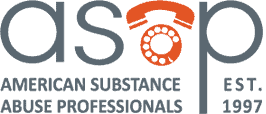SAPs play an important role in maintaining public safety by helping those in safety-sensitive positions to navigate the return-to-duty process if they have a positive DOT drug/alcohol test, refusal to test or other violations that could be specific to a particular DOT Agency. At ASAP, we are industry leaders here to provide support and guidance for SAPs in our network by maintaining clinical and administrative know how of the SAP community.
Additional Top 5 Reasons:
- Generate additional income
- Diversify your skill set and practice
- Engage with new population of clients
- Growth opportunities
- ASAP Support Team
Apply today to become a part of the ASAP Substance Abuse Professional network.
As part of the ASAP network, we provide you with the support to help you be successful. Our case managers are quality assurance experts who make the ASAP clinical services effective and efficient. Each case has an ASAP case manager involved from start to finish, providing support to the parties involved to ensure successful completion of the program.
To become a SAP, you must hold one of the following:
- Licensed or Certified Physician
- Licensed or Certified Psychologist
- Licensed or Certified Social Worker
- Licensed or Certified EAP professional
- Licensed or Certified Marriage and Family Therapist
- Certified Drug and Alcohol Counselor
In addition, you must pass the SAP qualification training course and satisfactorily complete an exam by a nationally recognized professional or training organization. Ask us where to complete the exam.
To become a qualified DOT SAP you must also meet the additional requirements listed below:
- Clinical experience in diagnosing and treating substance abuse disorders
- Knowledge of SAP functions related to safety-sensitive duties and employer interests
- Knowledgeable of the DOT Regulations, SAP Guidelines, any DOT agency regulations applicable to that employee’s evaluation and any other material provided by ODAPC. Subscribe to the ODAPC list-serve.
SAPs are required to maintain their professional development and stay up to date on regulation changes for the DOT. Twelve continuing education credits are required during each three year renewal period.
ASAP offers qualification courses and resources on how to become a SAP. Our online continuing education courses are written by our own in-house experts. ASAP is listed on the DOT Office of Drug & Alcohol Policy Compliance (ODAPC) website as a “SAP Training Resource”. All courses are approved by National Association of Social Workers (NASW), The Employee Assistance Certification Commission (EACC) and The Certification Commission from Drug and Alcohol Program Professionals (CCDAPP). Sign up now.
The Federal Motor Carrier Safety Administration (FMCSA) established the Drug and Alcohol Clearinghouse as a central online database for employers to identify commercial driver’s license (CDL) and commercial learner’s permit (CLP) holder’s drug and alcohol violations in real-time. This allows employers to request consent to query the driver to ensure they are eligible to perform safety sensitive functions or understand where the driver is in the return-to-duty (RTD) process with a violation, providing an additional safeguard on public roads.
The SAPs role in the Clearinghouse is to register self-certifying your qualifications, be ready for driver requests, enter the date the driver’s initial assessment was completed and date that you determine the driver’s eligibility for RTD testing.
To learn more about the Clearinghouse, click here.
This could occur when the driver requires technical support with registration, the violation is not visible to the driver for some reason, driver requires assistance on how to identify a SAP in the portal or the driver is uncertain or reluctant of their federal requirements.
Unfortunately, ASAP is not and cannot be an authorized agent that can register anyone, view violations or resolve technical issues. If assistance is required, please contact or have the driver contact the Clearinghouse directly at clearinghouse@dot.gov or (844) 955-0207.
You must contact the Clearinghouse directly at clearinghouse@dot.gov to state the violation is not visible and ask for technical assistance to have the matter corrected. Until the matter is resolved, your responsibilities as a SAP cannot me met within the Clearinghouse, however, you clearly have requested assistance and have it documented via email. It is important that the process not be held up for the driver.
It is the requirement under FMCSA for a commercial driver license (CDL) and commercial learner’s permit (CLP) holder to register in the Clearinghouse if they want to complete the DOT return-to-duty process in order to clear a violation and return to safety-sensitive work. Part of that process is to identify their SAP in the Clearinghouse. It is critical for every party involved in the Clearinghouse do their part for the process to run smoothly, meeting DOT regulations, as well as, FMCSA regulations. If a SAP starts a case with a driver and then does not receive the driver’s request, you will not be able to fulfill your FMCSA requirements; 1) entering the driver’s initial assessment date and 2) the date you determined the driver is eligible for the return-to-duty test.
In turn, an employer with a commercial driver candidate will not be able to place the driver under DOT safety sensitive functions until the driver registers, identifies the SAP and the SAP then completes their responsibilities. The employer will also need to request consent from that driver to run a query. The employer running the query on the driver will then see the stage they are in the return-to-duty process. Encourage the driver to do their part to return to work and register in the Clearinghouse.




